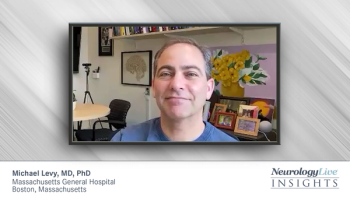
This discussion covers the factors leading to relapses and recurring attacks in NMOSD, how disease severity and relapses contribute to disability accumulation, and their impact on patients' quality of life.

This discussion covers the factors leading to relapses and recurring attacks in NMOSD, how disease severity and relapses contribute to disability accumulation, and their impact on patients' quality of life.
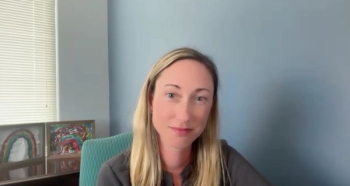
The director of neurology and neuromuscular medicine at the Children’s Hospital of the King’s Daughters in Norfolk, Virginia, discussed SMA Awareness Month and the enhancements to newborn screening for the disease. [WATCH TIME: 4 minutes]
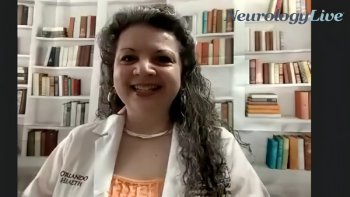
The director of academic clinical research at Orlando Health reflected on the journey of a blood test for traumatic brain injury to clinical use, highlighting the collaborative efforts and patient participation that made it possible. [WATCH TIME: 3 minutes]

The director of academic clinical research at Orlando Health talked about applying Abbott's blood test for suspected mild traumatic brain injury, providing results within 15 minutes, in the clinical practice. [WATCH TIME: 5 minutes]
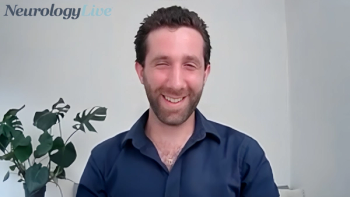
The postdoctoral researcher at Amsterdam University Medical Center talked about the development of the DAAE score, a tool for predicting the risk of transition to secondary progressive multiple sclerosis. [WATCH TIME: 8 minutes]
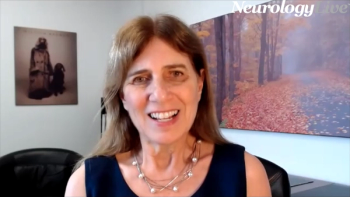
The medical director of the Toronto Memory Program at the University of Toronto gave clinical perspective on the promise of mivelsiran, an investigational RNA interference therapeutic, and the idea behind using RNA therapies to treat Alzheimer disease. [WATCH TIME: 5 minutes]
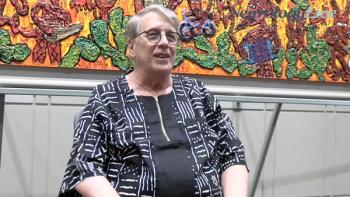
The professor of human genetics at the University of Miami discussed the significance of various genetic factors in Alzheimer risk and highlighted ongoing research, therapeutic challenges as well as the need for global collaboration. [WATCH TIME: 10 minutes]
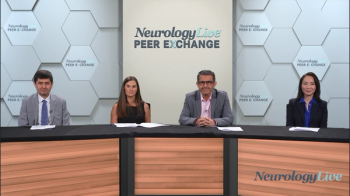
Experts on spasticity provide advice for practicing clinicians to optimize patient outcomes.

The professor of human genetics at the University of Miami talked about the Alzheimer's Disease Sequencing Project which aims to provide diverse genetic data to identify therapeutic targets for Alzheimer disease. [WATCH TIME: 10 minutes]
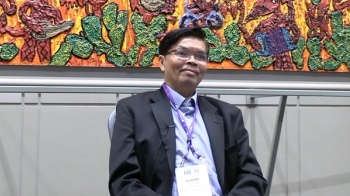
The chairman and chief executive officer at Biomed provided insight on the hypothesis behind a new phase 3 study assessing NA-831, an agent with neurogenesis effects, with lecanemab, a previously approved drug for Alzheimer disease. [WATCH TIME: 7 minutes]
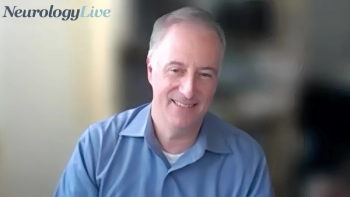
The Jerold B. Katz professor of neurology and neuroscience at Weill Cornell Medicine talked about a recent study that revealed patients who appeared unresponsive to verbal commands in vegetative or minimally conscious states retained high cognitive function. [WATCH TIME: 6 minutes]
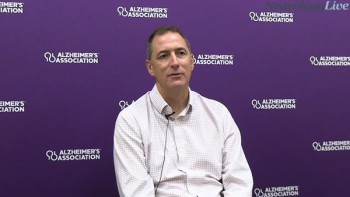
The professor of neurology and Diana Davis Spencer Foundation Chair at the Jackson Laboratory discussed the emerging importance of microglia in the context of Alzheimer disease research and its potential implications for clinical trials. [WATCH TIME: 4 minutes]
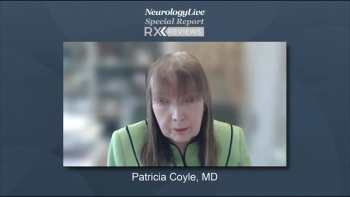
In this episode, Patricia Coyle, MD, FAAN, gave clinical insight on some of the next steps regarding S1P-modulating therapies, including some of the advantages of newer generation agents and the need for future studies to investigate benefits and limitations to each.
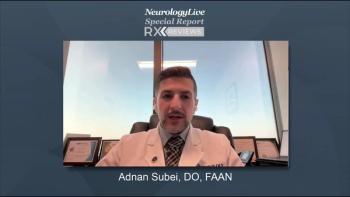
In this episode, Adnan Subei, DO, gave clinical background on ozanimod, the supportive trials behind the drug, and its known efficacy and safety profile to date.
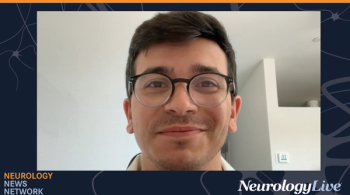
Neurology News Network. for the week ending August 17, 2024. [WATCH TIME: 4 minutes]
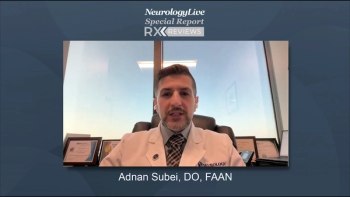
Neurologist Adnan Subei, DO, gave clinical background on ozanimod, the supportive trials behind the drug, and its known efficacy and safety profile to date.
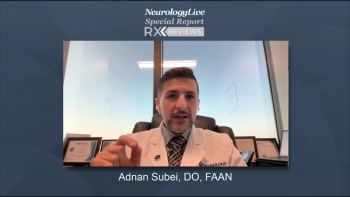
In this episode, Adnan Subei, DO, FAAN, discusses siponimod, a selective S1P receptor modulator approved in 2019, its clinical advantages, efficacy, and how it may be useful for patients with multiple sclerosis.
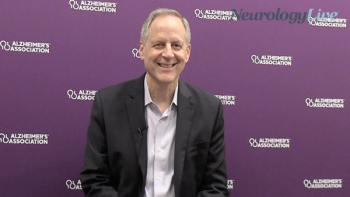
The director of the Cleveland Lou Ruvo Center for Brain Health at Cleveland Clinic discussed new diagnostic techniques that show promise for advancing the understanding of brain pathologies like Alzheimer and Lewy Body diseases. [WATCH TIME: 3 minutes]

In this episode, Patricia Coyle, MD, FAAN, provides in-depth insight on fingolimod, the first approved S1P receptor modulator, and the clinical data pre- and post-approval.
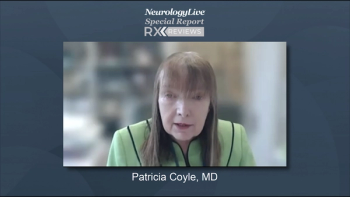
In this episode, Patricia Coyle, MD, FAAN, describes the development of S1P modulator receptors, their mechanism of action, potential side effects, and considerations for patient suitability, particularly in comparison to other treatment options like monoclonal antibodies.

The director of the Cleveland Lou Ruvo Center for Brain Health at Cleveland Clinic talked about challenges of accurately diagnosing dementia with Lewy bodies as well as new methods that show promise in guiding treatment. [WATCH TIME: 3 minutes]
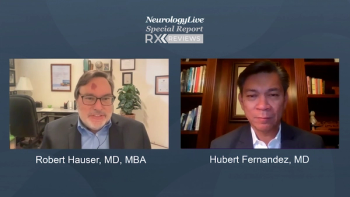
The panelists provided clinical insight on the utilization of IPX203, its potential benefits and clinical implications, as well as the practicalities of transitioning patients from other therapies.
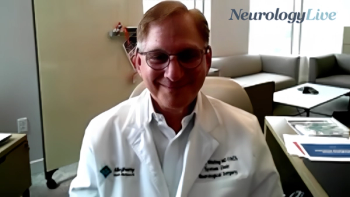
The chair of Allegheny Health Network’s Neurosciences Institute talked about its comprehensive center that integrates multidisciplinary resources and technology to provide quality care for patients with chronic neurologic conditions. [WATCH TIME: 5 minutes]

The panelists discussed the safety profile of IPX203, considering challenges with transitioning, dosing strategies, and monitoring and adjusting patients’ individual dosage.

Dr. Hauser and Dr. Fernandez provided insight on the body of supportive evidence for IPX203, the notable takeaways from RISE-PD, and the long-term benefits observed from treated patients.
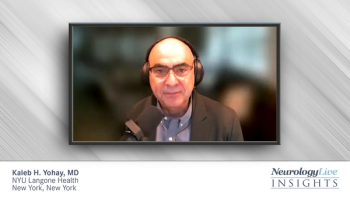
Kaleb Yohay, MD, an expert in NF1-PN, emphasizes the importance of multidisciplinary and comprehensive team care in managing the condition, detailing the essential team members required to facilitate a successful transition from adolescent to adult care.

Experts on spasticity explore real-world outcomes and treatment trends in the disease treatment landscape.

Experts on spasticity discuss the potential use of ITB pumps earlier in therapy to optimize patient outcomes.
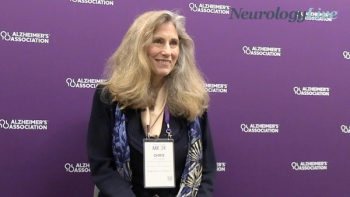
The CEO and cofounder at Advanced Brain Monitoring talked about how the early diagnosis of frontotemporal dementia is often mistaken for Alzheimer disease, but advancements in neuropsychological assessments and biomarker identification may improve accuracy. [WATCH TIME: 4 minutes]

IPX203 combines immediate and extended-release levodopa, utilizing advanced delivery technology to optimize absorption and prolong therapeutic effects in patients with Parkinson disease.